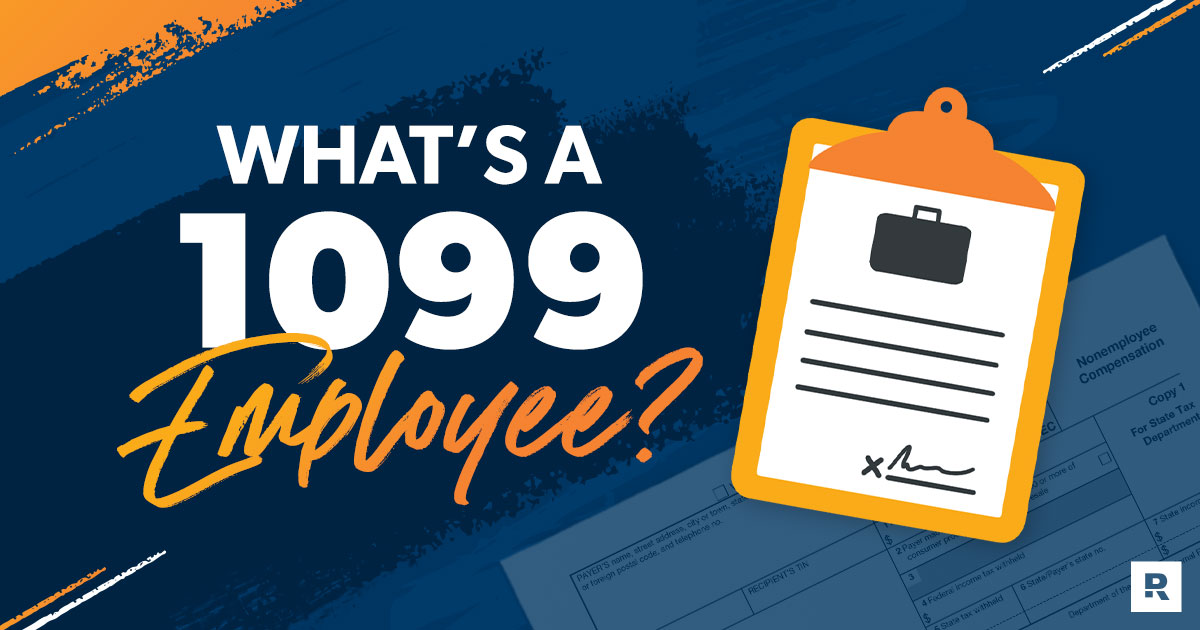What Is a 1099 Employee? Everything You Need to Know
5 Min Read | Sep 1, 2023

If you own a small business, filing your taxes can be confusing. And hiring contractors adds another layer of complexity because that means you’ll have what are commonly called 1099 employees.
Calling someone a number might make them feel insignificant, but 1099 really just refers to a tax form. At the end of the year, you’ll have to send 1099-NEC tax forms to contractors who did work for you. This form lists how much money you paid them over the course of the year.
Though many companies use the term 1099 employee, it isn’t really accurate because the IRS classifies workers who receive 1099s as nonemployees. A nonemployee is subject to different working conditions and doesn’t receive the same benefits and payroll deductions as an employee. We’ll talk about that a little later.
You might be wondering, What are the rules for hiring 1099 workers? If so, you’ve come to the right place.
Classification Rules for 1099 Workers
Determining whether someone is an employee or an independent contractor can be tricky for business owners—and that’s not just us saying that. The IRS, the reigning king of confusing rules, admits the official employee classification guidelines are a bit blurry. Basically, you have to look at the level of control and independence a worker has.1 If you have say-so over what someone does and how, when and where they do it, then guess what—you’ve got what the IRS calls a common-law employee on your team.
On the other hand, if you employ someone who works independently—when and how they want—and you aren’t looking over their shoulder and managing them, you probably have a contractor. You normally pay a contractor based on their output or what they deliver to you rather than for the hours they spend at the office. Contractors pay their own expenses and are free to do other jobs for other companies.
If this still seems murky, it’s because it is. You might have to reach out to a tax pro to help you determine the status of a worker. You can also ask the IRS for a status determination by filling out a form called an SS-8. But don’t expect a swift reply. It takes the IRS up to six months to issue a ruling.2
Examples of 1099 Workers
These days, many 1099 workers are part of what’s known as the gig economy. Gig sounds like we’re talking about computers, but think of it in rock-band lingo: “Dude, we got a gig at The Roxy.” So a gig is basically a short-term job.
Rideshare companies like Uber and Lyft, food delivery companies like DoorDash and Grubhub, and grocery delivery companies like InstaCart are all part of the gig economy—and their workforce is made up of 1099 workers.
Other types of 1099 workers include freelance writers, computer programmers and graphic designers. Self-employed tradespeople, accountants, lawyers and marketing professionals also fall into this bucket.
Why Is the 1099 Employee Designation Important?
Knowing whether a worker is a traditional employee or a 1099 employee is important because it will affect how you handle your payroll. A traditional employee receives benefits, like health insurance and vacation time, and has taxes deducted from their paycheck. At the end of the year, you’ll send them a W-2 tax form that lists their wages and the taxes they paid.
A 1099 employee doesn’t receive benefits or have taxes deducted from their paycheck. So at the end of the year, you’ll send them a 1099-NEC tax form. A 1099-NEC lists how much money an independent contractor earned so they can pay taxes on that income. It’s the contractor’s responsibility to report their income and pay their taxes.
Got small business tax questions? RamseyTrusted tax pros are an extension of your business.
Contractors also must pay a self-employment tax of 15.3% to cover Social Security and Medicare taxes. A traditional employee only pays half (7.65%) of these taxes because the IRS requires their employer to pay the other half.
What if You Misclassify a Contractor?
You have to be super careful when deciding whether a worker is an employee or a contractor. If the IRS determines you misclassified an employee as a contractor, you might have to pay Social Security and Medicare taxes from previous years, with penalties and interest on top of that. If you misclassified a group of contractors over a period of years, you could be hit with a substantial tax bill.
It’s really better to be safe than sorry. If you’re the slightest bit unsure about whether or not someone working for you is an employee or a contractor, ask a tax pro for help.
Steps to File a 1099-NEC
As a business owner, you’ll need to send a 1099-NEC to anyone who is self-employed who did more than $600 of work for you in a given year. You’ll also need to submit the 1099 to the IRS. The deadline to send 1099s is January 31. If you miss the deadline, the IRS will fine you between $50–550 per form, depending on how late your 1099s are.3
When you hire a contractor, make sure they fill out a W-9 tax form so you have their information when it’s time to send them (and the IRS) a 1099-NEC.
Work With a Tax Pro
If paperwork is stealing time away from doing the work you love, a tax advisor can help you with more than just filing taxes. Our Endorsed Local Providers (ELPs) can also take the headache out of payroll and bookkeeping. They are RamseyTrusted and can guide you through the complexities of doing your taxes right the first time!
Expert Advice Delivered Straight to Your Inbox
Our weekly email newsletter is full of practical advice you can easily apply to your daily routine so you can win with your money, relationships and career.


